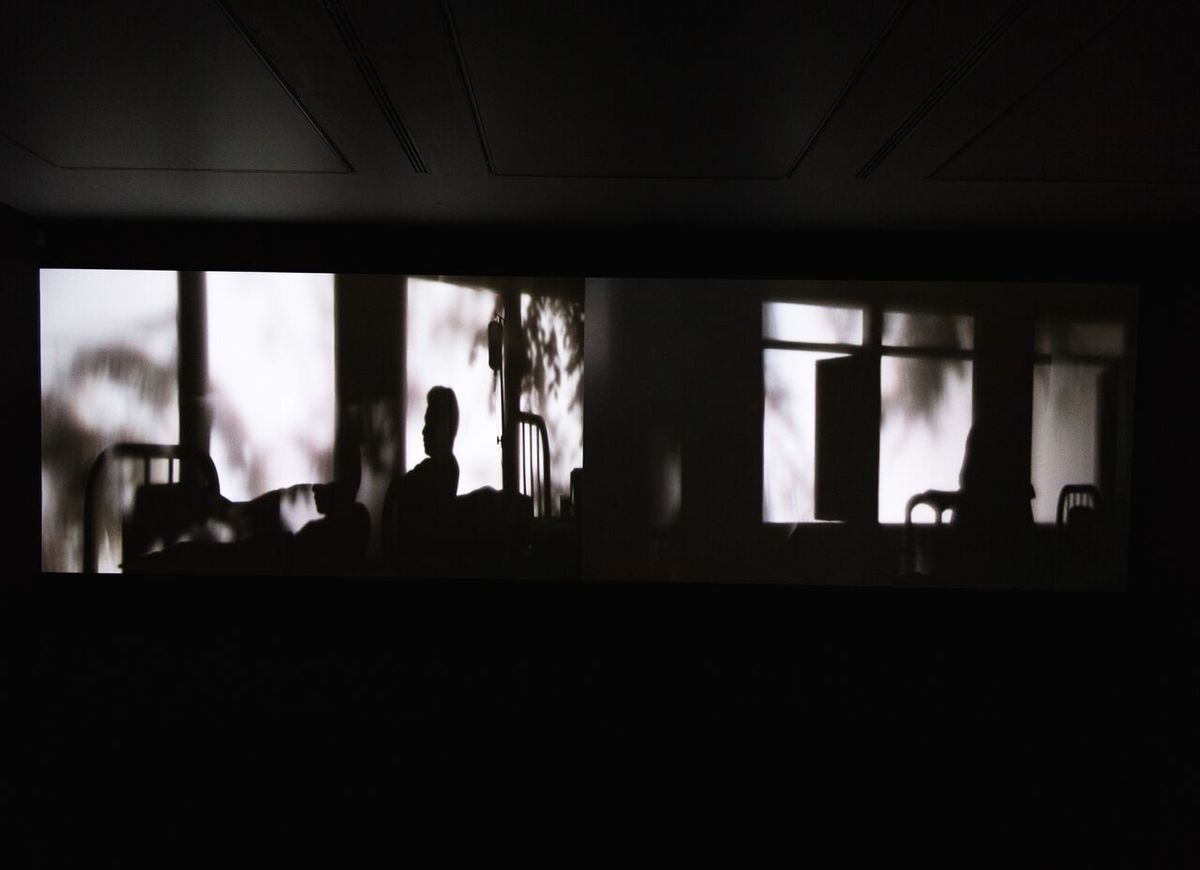The Thai film-maker Apichatpong Weerasethakul has won the Artes Mundi prize, the UK’s largest award for contemporary art worth £40,000. The other shortlisted artists are Anna Boghiguian, Trevor Paglen, Otobong Nkanga and Bouchra Khalili; all of the artists’ works are on show in the Artes Mundi 8 exhibition which runs until 24 February at the National Museum Cardiff.
Weerasethakul’s dreamlike dual-screen black-and-white film Invisibility (2016) depicts shadowy figures in an enclosed room, touching on political corruption in Thailand and the clampdown on freedom of speech there. The judges are the independent curator Laura Raicovich; Katoaka Mami, the deputy director and chief curator, Mori Art Museum, and Anthony Shapland, the creative director of the G39 space in Cardiff.
They say in a statement: “When times are tough it is sometimes not safe to talk about politics explicitly and Apichatpong Weerasethakul provides us with some subtle tools of resistance: the methodology of camouflage demonstrated in Invisibility is a powerful weapon in these turbulent times.”
The artist creates installations, videos, and feature films that are “often non-linear and transmit a strong sense of dislocation and otherworldliness”, says Kurimanzutto, Weerasethakul’s dealer in Mexico City. The artist was awarded the Palme d’Or at the Cannes film festival in 2010 for Uncle Boonmee Who Can Recall His Past Lives.
The last Artes Mundi prize was won by the UK artist John Akomfrah in 2017. Previous winners include Theaster Gates, Teresa Margolles, Yael Bartana, Eija-Liisa Ahtila and Xu Bing.


